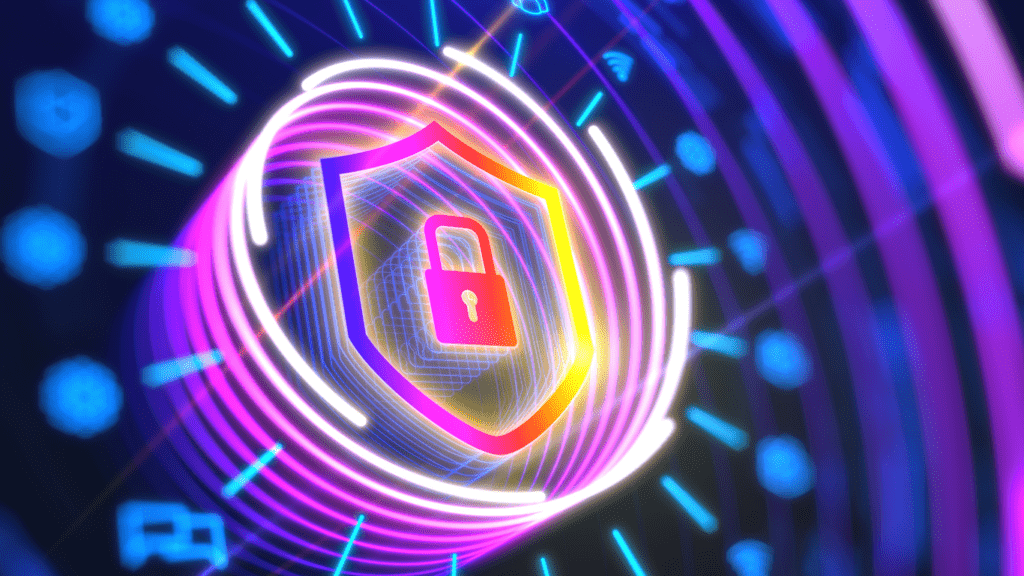As a passionate gamer, I know how important it is to enjoy seamless gameplay without worrying about cybersecurity threats. In the fast-paced world of online gaming, safeguarding your personal information and accounts is paramount. That’s why understanding how to protect yourself online is crucial for every gamer.
In this article, I’ll delve into the realm of cybersecurity in gaming, offering valuable insights and practical tips to enhance your online security. From safeguarding your gaming accounts against unauthorized access to recognizing common phishing scams targeting gamers, I’ll cover essential strategies to keep you safe while immersed in virtual worlds.
Join me as we explore the dynamic landscape of cybersecurity in gaming and empower ourselves with the knowledge needed to navigate the digital realm securely. Let’s level up our defenses and ensure a secure gaming experience for all.
Understanding Cybersecurity in Gaming
Cybersecurity in the context of online gaming refers to the measures and practices implemented to protect gaming systems, accounts, and personal information from cyber threats. As a gamer, it’s crucial to be aware of potential risks and proactively take steps to secure your online presence.
What Is Cybersecurity in the Context of Online Gaming?
I’ll define cybersecurity in online gaming as the set of strategies and tools used to safeguard gaming platforms and data from unauthorized access and malicious attacks. It involves implementing strong passwords, enabling two-factor authentication, and staying vigilant against phishing attempts.
Why Gamers Are Vulnerable to Cyber Attacks
Gamers are often targeted by cybercriminals due to the value of virtual goods, in-game currency, and personal information associated with gaming accounts. Additionally, the online nature of gaming exposes players to various threats such as malware, social engineering tactics, and account takeovers. Being aware of these vulnerabilities is essential in enhancing cybersecurity measures while gaming.
Common Cyber Threats in Online Gaming
Cyber threats in online gaming are pervasive, and being aware of them is crucial for safeguarding your gaming experience. Let’s explore some common threats that gamers may encounter and how to protect themselves.
Phishing Attacks
Phishing attacks are deceitful attempts by cybercriminals to trick gamers into revealing their personal information, such as login credentials or credit card details. These attacks often come in the form of emails or messages that appear to be from legitimate gaming companies. To protect yourself from phishing:
- Be cautious of unsolicited messages asking for personal information.
- Avoid clicking on suspicious links or downloading attachments from unknown sources.
- Verify the legitimacy of emails by checking the sender’s email address and domain.
Malware and Viruses
Malware and viruses are malicious software programs that can infect gaming devices and compromise sensitive data. They can be disguised as game mods, cheat codes, or other enticing downloads. To prevent malware infections:
- Only download games and software from official sources or trusted websites.
- Keep your antivirus software up to date to detect and remove any malware.
- Avoid clicking on pop-up ads or downloading files from unverified sources.
Account Takeovers
Account takeovers occur when cybercriminals gain unauthorized access to a gamer’s account, allowing them to steal in-game items, virtual currency, or personal information. To prevent account takeovers:
- Use unique and complex passwords for each gaming account.
- Enable two-factor authentication whenever possible to add an extra layer of security.
- Regularly monitor your account activity for any unusual login attempts or changes.
By understanding these common cyber threats in online gaming and implementing proactive security measures, you can enjoy your gaming experience while keeping your personal information and accounts safe from cybercriminals.
Strategies for Improving Your Online Safety

Ensuring online safety in gaming requires proactive measures to safeguard personal data and accounts. Implementing robust strategies can mitigate the risk of falling victim to cyber threats and enhance overall cybersecurity awareness.
Using Strong, Unique Passwords
Enhancing your online security starts with creating strong and unique passwords for your gaming accounts. It’s essential to avoid using easily guessable passwords such as “123456” or “password.” Instead, opt for a combination of letters, numbers, and special characters to create a secure password that is hard to crack. Remember, using the same password for multiple accounts can increase vulnerability to cyber attacks.
Two-Factor Authentication
Two-factor authentication (2FA) adds an extra layer of security to your gaming accounts by requiring two forms of verification before granting access. Enable 2FA whenever possible to protect your accounts from unauthorized entry, even if your password is compromised. This additional step greatly reduces the risk of unauthorized access and enhances the overall security of your gaming accounts.
Keeping Software Updated
Regularly updating your gaming software is crucial for maintaining a secure gaming environment. Developers frequently release updates that patch security vulnerabilities and enhance protection against new cyber threats. By keeping your games and gaming platforms up to date, you ensure that you have the latest security features and safeguards in place to protect your online gaming experience.
Tools and Resources to Aid in Gaming Security
When it comes to enhancing gaming security, utilizing the right tools and resources can make a significant difference. Here are some essential resources that can help protect your online gaming experience:
Anti-Virus Software
Protecting your gaming device from malware, viruses, and other cyber threats is crucial. Installing reputable anti-virus software can help detect and eliminate potential threats before they cause harm. Regularly updating your anti-virus program ensures you stay protected against the latest security risks.
Virtual Private Networks (VPNs)
Using a Virtual Private Network (VPN) while gaming adds an extra layer of security by encrypting your internet connection and keeping your online activities private. VPNs help protect your data from cybercriminals and hackers when gaming on public Wi-Fi networks. Look for reliable VPN services that offer fast connections to maintain smooth gameplay.
Secure Payment Methods
When making in-game purchases or transactions, opt for secure payment methods to safeguard your financial information. Use reputable payment platforms that prioritize security and encryption to prevent unauthorized access to your sensitive data. Avoid sharing payment details in unencrypted environments and regularly review your transaction history for any unusual activity.
Tammylie Romanors
Tammylie Romanors is the visionary founder and a prolific article writer for Gear Up Play On, a premier platform dedicated to providing gamers with professional, friendly, and trusted content. With an unwavering passion for gaming and a comprehensive understanding of the industry, Tammylie has built Gear Up Play On into a leading resource for gamers worldwide. Her journey began with a love for gaming that evolved into a mission to create a space where gamers could find reliable and innovative information.



